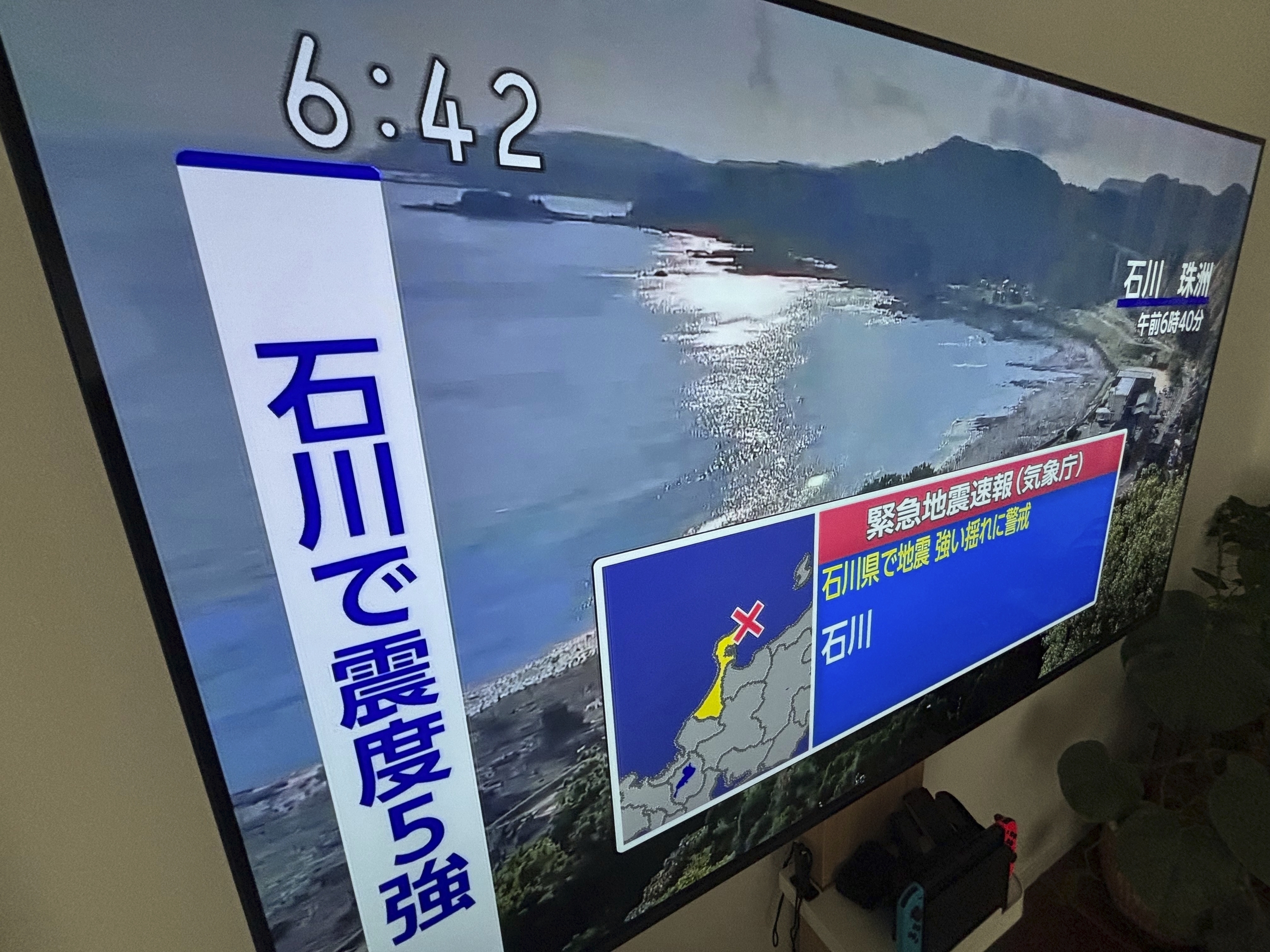A magnitude 5.9 temblor on the northern top of the Noto Peninsula was followed minutes later by a 4.8 and then several smaller quakes within the next two hours, the Japan Meteorological Agency said. There was no tsunami.
Five houses that had been damaged in the Jan. 1 quake collapsed in Wajiima city, but no major damage or life-threatening injuries were reported, according to Ishikawa prefecture. A quake alarm in the town of Tsubata, about 100 kilometers (60 miles) southwest of the epicenter, surprised a resident in her 60s who fell from her bed but the injury was not life-threatening, prefectural officials said.
JMA seismology and tsunami official Satoshi Harada said Monday's quakes were believed to be aftershocks of the magnitude 7.6 earthquake on Jan. 1. Seismic activity has since slightly subsided, but Harada urged people to be cautious, especially near buildings that were damaged earlier.
Shinkansen super-express trains and other train services were temporarily suspended for safety checks but most of them resumed, according to West Japan Railway Co.
The Nuclear Regulation Authority said no abnormalities were found at two nearby nuclear power plants. One of them, the Shika plant on the Noto Peninsula, had minor damage, though officials said that did not affect cooling functions of the two reactors.
Hokuriku Electric Power Co. said there were no power outages.
Monday's rattlings rekindled fear among residents who are still struggling to recover from damages from the New Year's quake. NHK public television showed a number of people who came out of their homes and temporary shelters to see if there were additional damage.
"Many people who have been living at evacuation centers must have been been frightened," Chief Cabinet Secretary Yoshimasa Hayashi said, urging caution against potential falling rocks and landslides in areas that were shaken strongly.
Reconstruction comes slowly in mountainous areas on the peninsula, and many damaged houses remain untouched.
In Wajima, which was one of the hardest-hit areas, an inn operator told NHK that he immediately ducked under the desk at the reception when the first quake struck Monday. Nothing fell to the floor or broke, but it reminded him of the January shakings and made him worry that a big quake like that had occurred even five months later.
The Jan. 1 quake killed 260 people, including those who later died due to stress, illnesses and other causes linked to the quake, with three others still missing, according to the FDMA. Damages still remain, and more than 3,300 residents remain evacuated.
